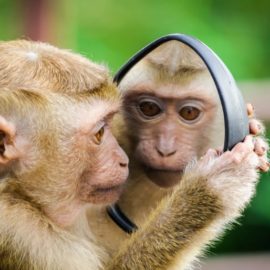
This is a free excerpt from one of Shortform’s Articles. We give you all the important information you need to know about current events and more.
Don't miss out on the whole story. Sign up for a free trial here .
Are billionaires ethical or are they manipulating the system? How do the opinions about billionaires differ on the left and right?
The United States has the most billionaires in the world, with Elon Musk, Jeff Bezos, and Mark Zuckerberg at the top. With their expanding wealth and visibility over the past few years, billionaires are coming under more scrutiny.
Here’s a look at the growth of billionaires, their influence, and opinions about them from all sides.
Photo Credit. License. No changes made.
The Growth of Billionaires
Billionaires are center stage in the US, as their wealth and political influence have grown dramatically over the past few years:
Wealth: US billionaires’ wealth has been soaring. As of March 2024, the US had 745 billionaires with a combined wealth of more than $5 trillion—representing an 88% increase from four years ago. While billionaire tech companies’ growth has fueled the economy, some say billionaires aren’t ethical and are rigging the system in their favor and widening income inequality.
Political influence: Billionaires played a major role in the November 2024 US presidential election, and they’re poised to help reshape public policy as part of the next administration:
- According to Forbes, 83 billionaires committed to supporting Kamala Harris with 52 backing Donald Trump.
- Elon Musk campaigned with Trump and spent over $250 million to back him.
- Peter Thiel influenced Trump’s running-mate choice.
- Trump himself is a billionaire. Although his net worth is debated, Forbes put it at $5.6 billion in November 2024.
- Since winning the election, Trump has nominated a record number of billionaires, with a combined net worth exceeding the GDP of 172 countries, for positions in his second administration. He’s tapped Musk and Vivek Ramaswamy to “reinvent” the government.
With their expanding wealth and visibility in government, billionaires are coming under more scrutiny.
Differing Opinions on Billionaires
Americans are noticing of the wealth gap between billionaires and the rest of society, according to an August 2024 Harris survey: 59% say billionaires are creating a more unfair society, 58% blame them for increasing inflation, two-thirds think billionaires aren’t taxed enough, and 71% say they’re not contributing enough to society. Yet while 39% say they despise billionaires, about 60% admire them and aspire to become billionaires.
Critical views of billionaires range across the political spectrum, with both the right and left expressing concern about so few people having such wealth and power. Here are the main criticisms:
Right-Leaning Criticisms
While the right is generally more supportive of wealth accumulation, some conservatives criticize billionaires for:
- Crony capitalism: Some on the right criticize billionaires who benefit from government favoritism or subsidies, viewing this as unfair market intervention.
- Cultural influence: Some conservative critics object to billionaires using their wealth to promote progressive social causes.
- Corporate power: Some populists criticize billionaires for outsourcing jobs or prioritizing global interests over national ones.
Left-Leaning Criticisms
Economic inequality: The left often argues that the existence of billionaires is a symptom of extreme economic inequality. They note that:
- Billionaires possess more wealth than the bottom half of U.S. households combined, and the concentration of wealth at the top has accelerated.
- This level of inequality undermines social stability and economic mobility.
Political influence: Critics from the left cite the outsized political power of billionaires: Billionaires have disproportionate influence on policy-making through campaign contributions, lobbying, and funding think tanks, which undermines the democratic principle of “one person, one vote.”
Exploitation and unfair practices: Left-leaning critics argue that billionaire wealth often comes at the expense of workers and society: Some billionaires exploit workers through low wages and poor working conditions. Some engage in tax evasion or manipulate loopholes.
Centrist Criticisms
Accountability and transparency:
- Moderates express concern about “stealth politics,” where billionaires quietly influence policy without public scrutiny.
- Some critics argue that extreme wealth concentration can lead to market distortions and inefficiencies.
Putting Things Into Context
US billionaires thrived during the pandemic: During the Covid-19 pandemic, the wealth held by billionaires in the US increased by 70%. Post-pandemic, American billionaires were 33% richer, and their wealth has continued to grow.
No. 1 in billionaires: Globally, the United States leads in the billionaire count, followed by China, India, Germany, and Russia.
The US billionaire elite: Here are the top five US billionaires as of December 2024, according to the Bloomberg Billionaires Index:
- Elon Musk ($444 billion): Tesla, SpaceX, and X (formerly Twitter) CEO
- Jeff Bezos ($244 billion): Amazon founder and owner of The Washington Post
- Mark Zuckerberg ($207 billion): Meta (Facebook) founder
- Larry Ellison ($190 billion: Oracle cofounder
- Larry Page ($170 billion): Google cofounder.

Want to fast-track your learning? With Shortform, you’ll gain insights you won't find anywhere else .
Here's what you’ll get when you sign up for Shortform :
- Complicated ideas explained in simple and concise ways
- Smart analysis that connects what you’re reading to other key concepts
- Writing with zero fluff because we know how important your time is






